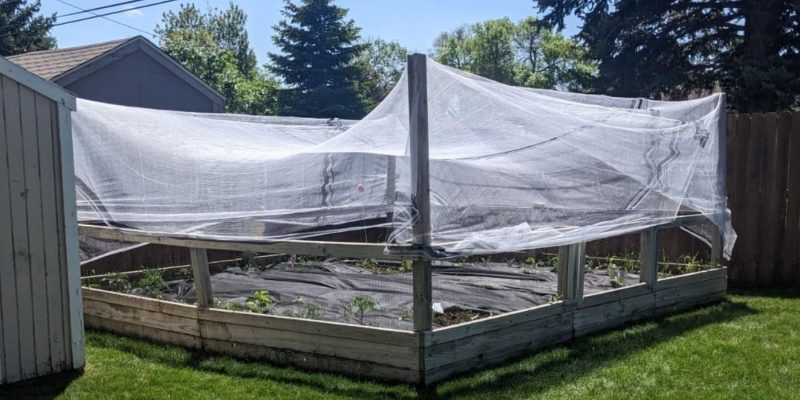As a company specializing in agricultural protective netting, we often hear customers say that hailstones hurt their garden plants during spring and summer. For example, hailstones can leave marks and cracks on tomatoes, which can cause disease or make the tomatoes not good enough to sell. If the hailstorm is very strong, it can even break the plant stems.
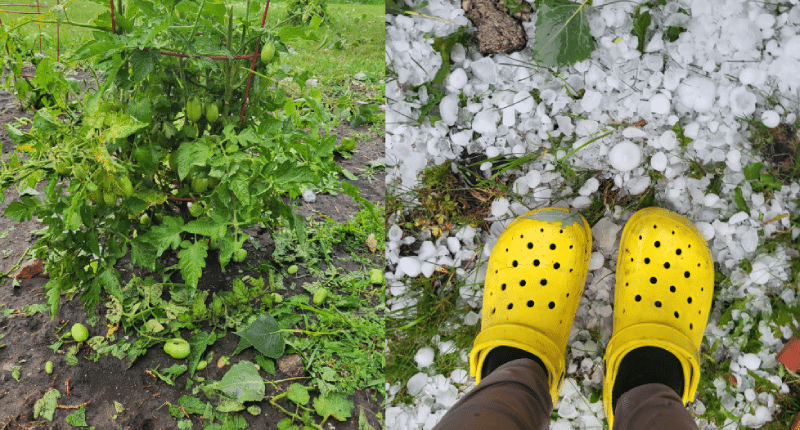
Hail-damaged garden plants – from Twitter@kyla_kitten
Then How to Protect Garden from Hail Damage?
Indeed, there are numerous strategies for protecting your garden’s flowers and vegetables from hail damage. Solutions can range from moving your plants to a sheltered porch, installing a portable greenhouse, or covering your garden area with hail netting.
Among these methods, hail netting often emerges as the top choice. It offers a substantial physical barrier against hail while not inhibiting essential sunlight or airflow, crucial elements for your plants’ growth. But the question remains – how does one select the best hail netting for your garden?
How to Choose the Right Hail Netting for Your Garden
Selecting the best hail netting for your garden involves taking several factors into consideration, including material, size, durability, and installation method.
1. Firstly, let’s talk about the material.
Hail netting is typically made of UV-stabilized polyethylene or nylon, materials that are resistant to weathering, chemical exposure, and physical wear and tear. Polyethylene nets are generally more lightweight and less expensive than nylon ones, while nylon nets offer superior strength and durability.
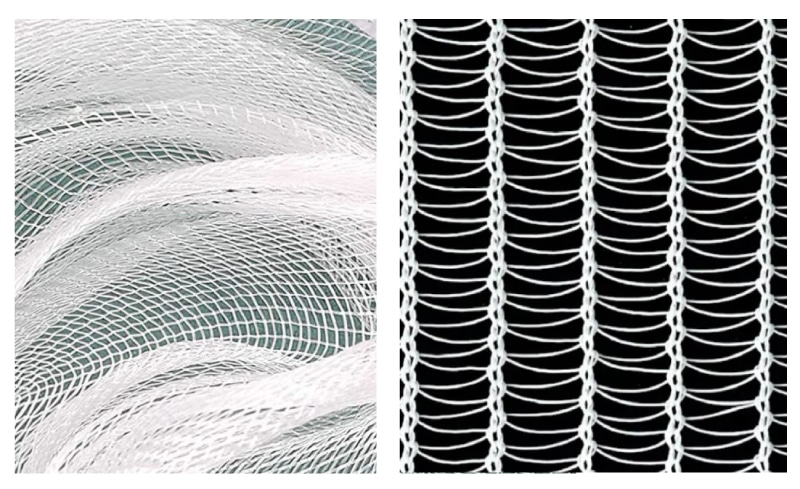
Nylon vs HDPE hail netting
However, High-Density Polyethylene (HDPE) has gained significant popularity due to its excellent outdoor aging resistance and durability, surpassing that of nylon. It is currently the preferred choice for many farmers and gardeners.
2. Next, size matters too.
The size of the netting you select should align with the dimensions of your garden or the area you wish to cover. Measure your garden accurately before making a purchase to ensure that the netting will provide comprehensive coverage.
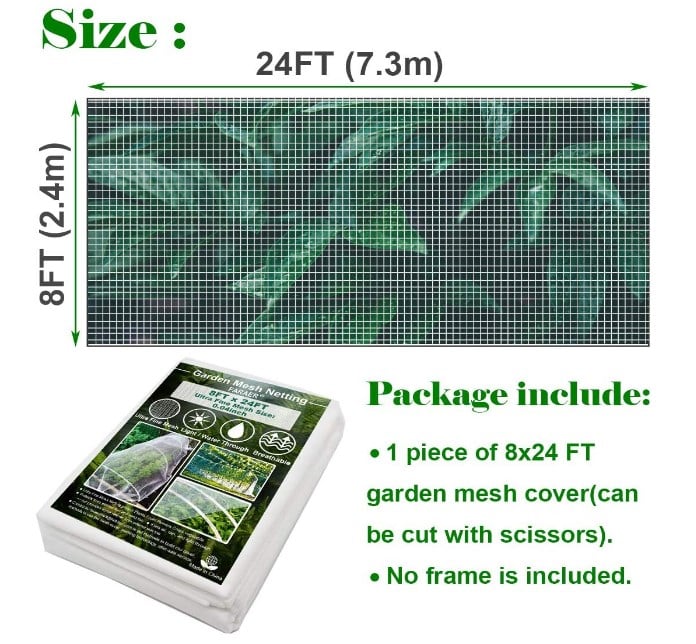
Considering the size of hail netting
If you have larger areas or multiple gardens to protect, consider buying in bulk from the original hail netting factories, which can offer a range of sizes or even customized options to suit your specific needs, often at a more cost-effective price point.
3. Durability is another significant aspect.
Since hail netting is designed for outdoor use, it must withstand various weather conditions, including intense sunlight, heavy rain, and, of course, hail. Therefore, opt for hail netting that is UV-resistant, waterproof, and strong enough to resist hail impact. So, strive to find products that have garnered positive reviews for their durability and come with extended warranty promises.
4. Finally, consider the installation method.
Some netting options come with built-in grommets, allowing for easy setup and removal. Others may require additional supports like poles or ropes. If you plan to install the netting yourself, opt for a system that is user-friendly and doesn’t require complex tools or professional assistance.
Remember, the best hail netting for your garden should offer optimal protection against hail, be cost-effective, and be easy to install and maintain. Therefore, it’s worth taking the time to research and choose a product that best suits your specific gardening needs and circumstances.
Top Best Hail Netting for Small-Scale Gardening
When it comes to individual use or small-scale gardening, we suggest turning to reliable online platforms such as Amazon or eBay for purchasing hail netting. There, you can find various options with different price points, materials, and sizes.
Here, we would like to recommend two highly popular hail netting products made from different materials:
1, FARAER Garden Mesh Netting
The FARAER Garden Netting, a cost-effective choice for hail protection, features ultra-fine mesh measuring 0.8 x 1 millimeters. It’s designed to safeguard your vegetables, fruits, or floral plantings from hail or bird damage during summer. Additionally, it offers 25% shade, making it an excellent choice if your garden plants require some sunlight protection. The product has received over 4,000 reviews, with an average rating of 4.4 or higher, suggesting its reliability.
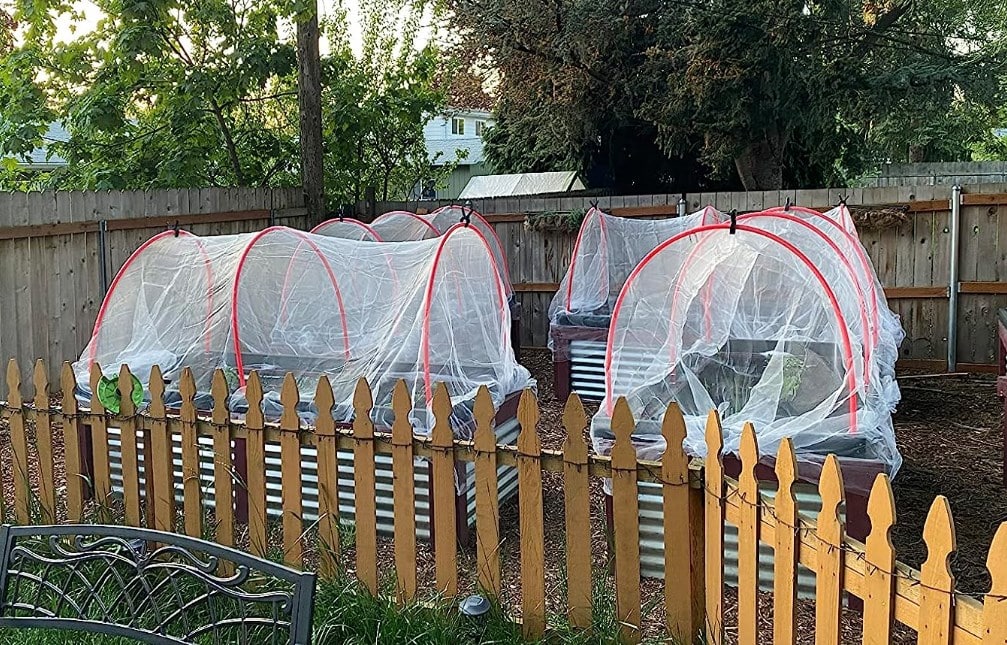
FARAER hail netting installed for garden protection
However, please note that this hail netting is made of Nylon, which may not offer the same outdoor aging resistance as HDPE. It also doesn’t include a frame, so you may need to create one or purchase it separately if necessary.
2, Mitef Anti Hail Netting
The Mitef Anti Hail Netting, made from durable HDPE material, boasts excellent UV resistance and anti-aging abilities, offering a longer warranty and lifespan. Mitef offers a tailored service, customizing the netting size to suit your garden’s specific dimensions. However, similar to the FARAER product, it does not include a frame structure.
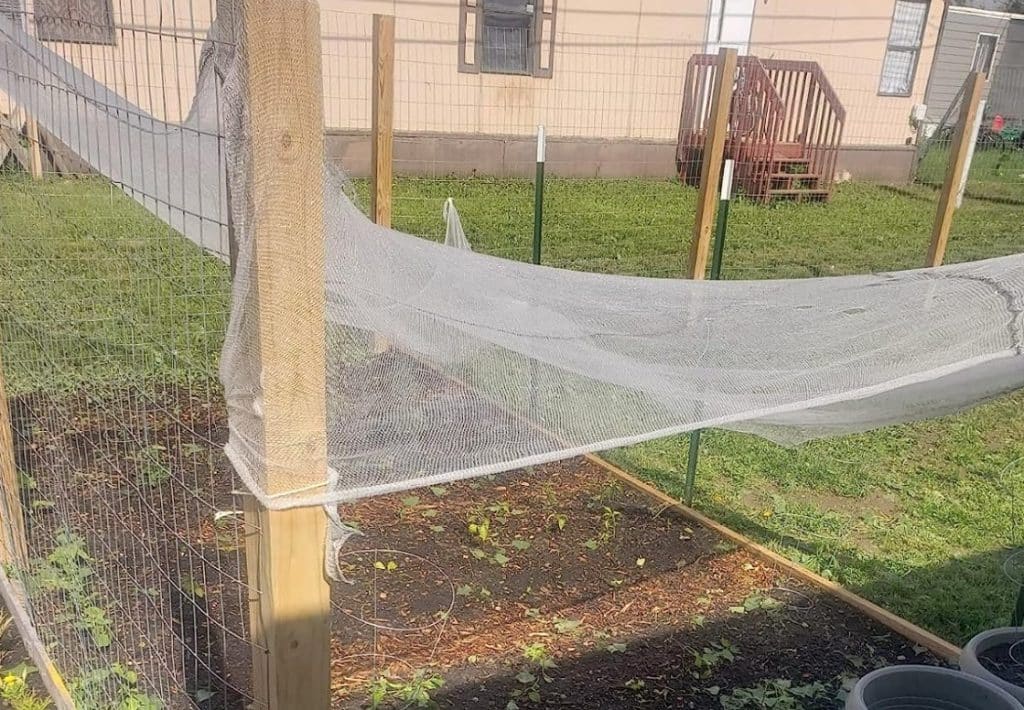
Mitef Anti Hail Netting for Garden Seeds
Fortunately, Mitef provides valuable installation tips in their product description, guiding you on how to effectively use the netting: Pull up and flatten the hail-resistant netting, maintaining a height of 2 to 4 inches from the plants. If using more than one piece of netting, connect them using a nylon rope by tying or sewing.
Top Choices for Large-Scale Buyers
If you’re a large-scale grower with vast plantations of fruit trees or commercial crops, you might find it more advantageous to buy directly from hail netting manufacturers. Generally, they can provide better pricing and offer services tailored to your needs, including custom mesh sizes, material types, and specific dimensions for the length and width of the netting.
For more details on this, check out our other article titled: Top 6 Best Hail Netting Manufacturers.
Conclusion
To sum up, choosing the right hail netting is a practical and effective method to protect your garden from hail damage. The key considerations are the material, size, durability, and installation method. Whether you’re an individual user or looking to make a bulk purchase, there are options available to suit your specific needs.
